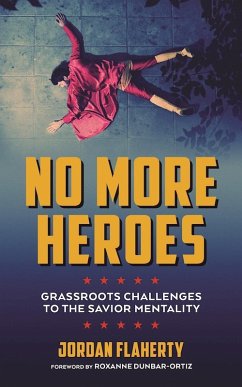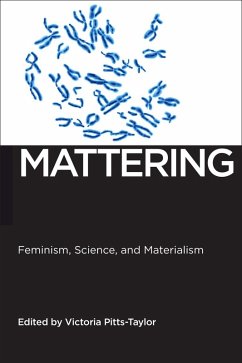
Finding Feminism (eBook, ePUB)
Millennial Activists and the Unfinished Gender Revolution
Versandkostenfrei!
Sofort per Download lieferbar
0,00 €
inkl. MwSt.
Weitere Ausgaben:

PAYBACK Punkte
0 °P sammeln!
The contemporary tactics of millennial feminists who are part of an active movement for social changeIn 2014, after a young man murdered six students at the University of California, Santa Barbara, and then killed himself, the news provoked an eye-opening surge of feminist activism. Fueled by the wide circulation of the killer's hateful manifesto and his desire to exact "revenge" upon young women, feminists online and offline around the world clamored for a halt to such acts of misogyny. Despite the widespread belief that feminism is out-of-style or dead, this mobilization of young women fight...
The contemporary tactics of millennial feminists who are part of an active movement for social change
In 2014, after a young man murdered six students at the University of California, Santa Barbara, and then killed himself, the news provoked an eye-opening surge of feminist activism. Fueled by the wide circulation of the killer's hateful manifesto and his desire to exact "revenge" upon young women, feminists online and offline around the world clamored for a halt to such acts of misogyny. Despite the widespread belief that feminism is out-of-style or dead, this mobilization of young women fighting against gender oppression was overwhelming.
In Finding Feminism, Alison Dahl Crossley analyzes feminist activists at three different U.S. colleges, revealing that feminism is alive on campuses, but is complex, nuanced, and context-dependent. Young feminists are carrying the torch of the movement, despite a climate that is not always receptive to their claims. These feminists are engaged in social justice organizing in unexpected contexts and spaces, such as multicultural sororities, student government, and online.
Sharing personal stories of their everyday experiences with inequality, the young women in Finding Feminism employ both traditional and innovative feminist tactics. They use the Internet and social media as a tool for their activism-what Alison Dahl Crossley calls 'Facebook Feminism.' The university, as an institution, simultaneously aids and constrains their fight for gender equality.
Offering a stunning and hopeful portrait of today's young feminist leaders, Finding Feminism provides insight into the contemporary feminist movement in America.
In 2014, after a young man murdered six students at the University of California, Santa Barbara, and then killed himself, the news provoked an eye-opening surge of feminist activism. Fueled by the wide circulation of the killer's hateful manifesto and his desire to exact "revenge" upon young women, feminists online and offline around the world clamored for a halt to such acts of misogyny. Despite the widespread belief that feminism is out-of-style or dead, this mobilization of young women fighting against gender oppression was overwhelming.
In Finding Feminism, Alison Dahl Crossley analyzes feminist activists at three different U.S. colleges, revealing that feminism is alive on campuses, but is complex, nuanced, and context-dependent. Young feminists are carrying the torch of the movement, despite a climate that is not always receptive to their claims. These feminists are engaged in social justice organizing in unexpected contexts and spaces, such as multicultural sororities, student government, and online.
Sharing personal stories of their everyday experiences with inequality, the young women in Finding Feminism employ both traditional and innovative feminist tactics. They use the Internet and social media as a tool for their activism-what Alison Dahl Crossley calls 'Facebook Feminism.' The university, as an institution, simultaneously aids and constrains their fight for gender equality.
Offering a stunning and hopeful portrait of today's young feminist leaders, Finding Feminism provides insight into the contemporary feminist movement in America.
Dieser Download kann aus rechtlichen Gründen nur mit Rechnungsadresse in A, D ausgeliefert werden.













